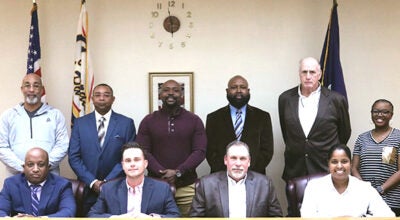City to get white glove treatment: Consultants to visit area as tourists to understand area
Published 12:16 am Thursday, April 18, 2013
NATCHEZ — Over the next few months, Natchez’s tourism industry is going to be under scrutiny.
Consultant Berkeley Young told those in attendance at a tourism summit at the Natchez Visitor’s Reception Center that he and one of his co-workers will be visiting Natchez as tourists to get an understanding of how Natchez tourism works.
They’ll also be taking a hard look at how the Convention and Visitor’s Bureau is operated and funded and will analyze the area’s lodging market.
Visitors to the area will be surveyed about their experience in Natchez.
“You don’t just say, ‘If you build it, they will come,’” Young said. “You need research — who are they, why will they come and how long will they stay?”
CVB Director Connie Taunton said such a survey has been a long time coming.
“This is one of the most-needed studies we have needed in a while,” she said. “We have not had a true tourism study done in Natchez since the early 1990s. This research data will help the CVB plan strategy going forward.”
Young said tourists are now doing more last-minute planning, making shorter trips that are closer to home and are not traveling in the traditional family unit of mother, father and children.
The average tourist in today’s market, Young said, is seeking a luxury experience that is not understood as expense for expenses’ sake but as therapy.
“For most travelers coming to Natchez, it is the need to come here and leave all their problems behind and relax and have a therapeutic experience that brings them,” he said. “The need to get away trumps the price of gas, the lack of a job and debt, politics and family.
“Are you therapists? Are you giving your guests a therapy experience?”
The other key is to meet changes in market demands, Young said.
“Sometimes if the customer changes, you can reinvent (the product), even a Pilgrimage,” he said. “We honor the past by having a productive future.”
Consultant Jennifer Barbee also spoke at the summit, outlining a plan to market Natchez’s tricentennial into a year-round event that results in full-time full hotel capacity.
Barbee said such a plan would include premiering a new, two-week long food festival named Beer, Bourbon and Biscuits that she said could attract 65,000 people and net the city $875,000 after operational costs.
In conjunction with that, existing festivals and events — including Spring Pilgrimage — could be expanded, and new ideas could be sprinkled throughout the year, she said.
Some of the new ideas Barbee mentioned included a celebrity golf tournament, a historically themed anti-prohibition party and mixology event and a genealogy weekend.
Small, medium and large corporate sponsors would fund all of the festivals and events. Ancestry.com and Budweiser have shown early interest in some of the proposals, Barbee said, but would need to see a business plan before committing to a major sponsorship.
The tricentennial will also need to be aggressively marketed through traditional and new media, Barbee said.
“There will be some possibility that there will be some sponsors who say, ‘I won’t give you that money, I will give you x, y and z,’ but I am going to be very vehement about getting that money because I can’t buy television advertising with in-kind services,” she said.
Natchez can likewise complement its existing efforts by having year-round cultural exhibits that focus on all of its history rather than just the antebellum period, Barbee said, though the key is to make such exhibits interesting.
“We want to make sure it is true to the story we want to show, but we also want to make it entertaining,” she said.
Barbee said important figures such as President Obama and the area’s congressional delegation could also be invited to appropriate events in the tricentennial.
The other thing the city will have to do if the flagship events are as successful as organizers hope is to partner with nearby cities to help house out-of-town visitors. Natchez has 1,150 hotel rooms, not including bed and breakfasts.
“We don’t want to turn people away, but there will get to a point that we not be able to house people,” she said.






